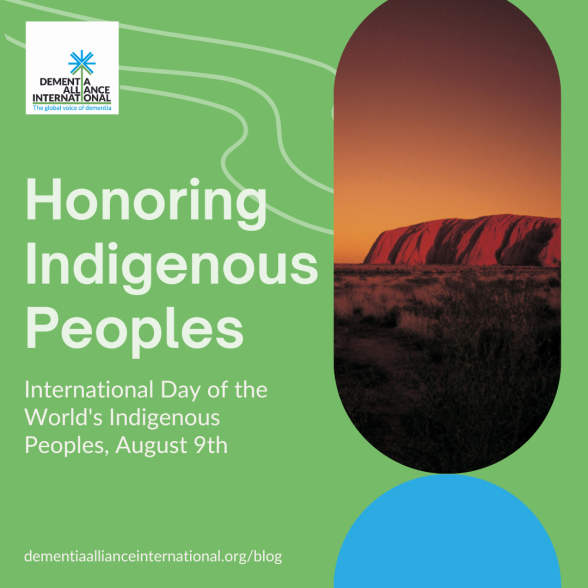On 9 August each year, the United Nations commemorates the International Day of the World’s Indigenous Peoples to raise awareness of the needs of these groups. This is done in recognition of the first meeting of the UN Working Group on Indigenous Populations held in Geneva in 1982.
Amnesty International reports that “across the world, Indigenous peoples' life expectancy is up to 20 years lower compared to non-Indigenous people. Indigenous peoples often rank highest for prison inmates, illiteracy and unemployment. Globally, they suffer higher rates of poverty, landlessness, malnutrition and internal displacement.” They go on to say,
Although they comprise only 5% of the world’s population, Indigenous Peoples safeguard 80% of the planet’s biodiversity.
More than 20% of the carbon stored above ground in the world’s forests is found in land managed by Indigenous Peoples in the Amazon Basin, Mesoamerica, the Democratic Republic of Congo, and Indonesia.
Their sophisticated knowledge of the natural world means that where Indigenous Peoples have control of the land, forests and biodiversity flourish. Their sustainable land use fights climate change and builds resilience to natural disasters.
In Australia, the Federal government recently voted for a referendum for an Indigenous Voice to Parliament, to be voted on by the people of Australia later this year. The 2017 Uluru Statement from the Heart [1] begins with the following:
Our Aboriginal and Torres Strait Islander tribes were the first sovereign Nations of the Australian continent and its adjacent islands, and possessed it under our own laws and customs. This our ancestors did, according to the reckoning of our culture, from the Creation, according to the common law from ‘time immemorial’, and according to science more than 60,000 years ago.
It is time for the oldest peoples in the world to have a voice in the parliament of their own country.
In the first systematic review to examine the prevalence and incidence of dementia in indigenous populations worldwide, published in 2012 by Laura Warren, Qiyun Shi, Kue Young, Amy Borenstein and Alexandra Martiniu [2], they found “the prevalence of dementia among indigenous populations appears to be higher than it is for non-indigenous populations. Despite a building body of evidence supporting the need for dementia research among indigenous populations, there is a paucity of epidemiological research, none of which is of high quality.”
Chen et al, and Smith et al, also re[port that although not all indigenous populations have experienced the same historical trauma, it is generally accepted that indigenous populations worldwide have a lower socio-economic status, lower levels of education, and poorer overall health (including higher rates of cardiovascular disease, diabetes, and alcohol abuse), increasing their risk for the development of dementia [3, 4].
In many countries, incarceration of Indigenous peoples versus others is much higher, rates of deaths in custody is much higher, and access to Universal Health Coverage is poor. Racism continues to be prevalent.
Like Amnesty International, we at Dementia Alliance International is also asking for action. We call for all governments to implement laws and policies that bring the UN Declaration on the Rights of Indigenous Peoples to life, particularly around:
• Effectively consulting Indigenous Peoples to obtain their free, prior and informed consent for decisions that affect them
• Maintaining their distinct cultural identities
• Living free from discrimination and the threat of genocide
• Having secure access to the lands and resources essential to their well-being and ways of life
References:
Chen, J. H., Lin, K. P. and Chen, Y. C. (2009). Risk factors for dementia. Journal of the Formosan Medical Association, 108, 754–764. doi:10.1016 /S0929-6646(09)60402-2.
Mayo, Thomas; O'Brien, Kerry. The Voice to Parliament Handbook (p. iv). Hardie Grant Explore. Kindle Edition.
Smith, K. et al. (2010). Factors associated with dementia in Aboriginal Australians. Journal of Psychiatry, 44, 888–893. doi:/10.3109/00048674.2010.491816.
Warren, L. A., Shi, Q., Young, K., Borenstein, A., & Martiniuk, A. (2015). Prevalence and incidence of dementia among indigenous populations: a systematic review. International Psychogeriatrics, 27(12), 1959–1970. /10.1017/S1041610215000861
